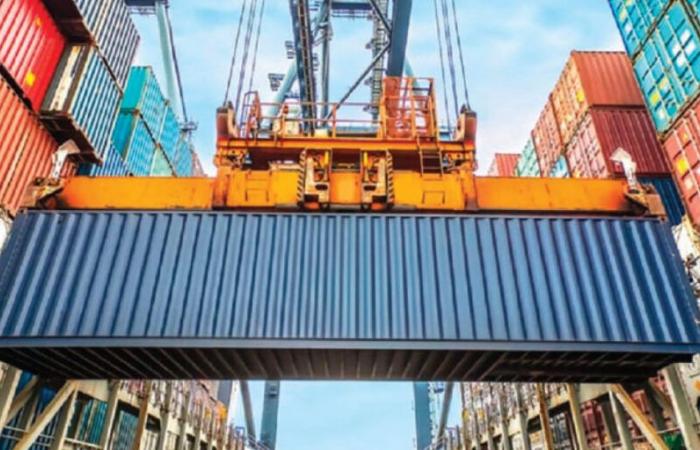Between a decline in trade in 2023 and opportunities to be seized, the new 2025-2026 foreign trade roadmap should allow for an improvement in the volume of trade between Morocco and the rest of the continent. Intra-African trade represents barely 4.6% of the Kingdom’s trade for the year 2023.
Although the volume of trade between Morocco and other African countries has evolved over the last decade, going from 36 billion dirhams in 2013 to 52.7 billion dirhams in 2023, recording an increase of 45%, this commercial dynamic has stalled. referring to the 2023 figures from the Foreign Exchange Office concerning Morocco’s foreign trade.
As a result, the volume of trade between Morocco and Africa declined by around 18.14% between the financial year 2022 and 2023, going from 46.015 billion dirhams in 2021 to 64.43 billion dirhams in 2022 to currently at 52.74 billion dirhams in 2023.
In addition, the African market, which contains enormous potential in terms of trade and investment, represents barely 4.6% of Morocco’s trade for the year 2023. This is the reason why the new sheet of foreign trade road 2025-2026, consultations of which have already been launched at the level of the 12 regions of the Kingdom, are being questioned in relation to this market.
You should know that unexploited opportunities in terms of exports are around 12 billion dirhams out of a total of 120 billion dirhams for the other markets identified by this roadmap according to Omar Hjira, Secretary of State to the Minister of Industry and Commerce in charge of Foreign Trade. It goes without saying that Africa’s weight in foreign trade with Morocco still remains low in comparison with other partners such as the European Union whose share is close to 63%, Asia (18.9%) or America (12%) according to statistics from the Foreign Exchange Office concerning Morocco’s foreign trade.
Egypt, main African partner for the 5th year
Referring to the analysis of trading partners in Africa, it is clear that Egypt remains for the fifth consecutive year the main African partner under the Agadir Agreement. It is followed in 2023 by Djibouti, ranked Morocco’s third partner country a year earlier. Then come Ivory Coast, Tunisia and Senegal. These five countries represent more than half of trade with Africa (53.4%). Regarding the structure of trade between Morocco and Africa, it should be noted that imports and exports also showed a decline for the year 2023.
For imports, the volume increased from 19.86 billion dirhams in 2021 to 25.58 billion dirhams in 2022 before declining to 20 billion dirhams in 2023. Imports from African countries mainly consist of coal, dates and materials plastics. The observation is the same for exports whose volume evolved from 26.14 billion dirhams in 2021 to 38.84 billion dirhams in 2022 before falling to 32.66 billion dirhams in 2023, which also affected the coverage rate of imports by exports. These mainly consist of fertilizers, fish, cars, automobile cables and food products.
As a result, the coverage rate increased from 62.3% in 2021 to 58.1% in 2022 before reaching 60.1% in 2023. Furthermore, with Africa, the trade balance generates a trade surplus down 5.1% or -670.6MDH.
Export capacities: 12 billion dirhams unexploited in Africa
Furthermore, according to a study carried out by the Ministry of Industry and Trade, the Kingdom has additional export capacities of up to 120 billion dirhams, of which 10% (i.e. 12 billion dirhams) would be destined for the African continent. She specifies that this export capacity concerns priority sectors such as the automobile industry, agri-food, textiles and clothing, as well as mechanical industries, covering around 200 products and 1,200 markets.
Regarding the obstacles to expansion in African markets, Omar Hjira, Secretary of State to the Minister of Industry and Commerce, in charge of Foreign Trade indicated, Tuesday in the House of Advisors, that the obstacles to expansion in African markets, are essentially linked to the lack of transport between Morocco and several countries on the continent, noting that a first maritime route linking Agadir to Dakar will soon be launched, before being extended to other African countries by land.
In this context, Hjira noted the importance of taking advantage of the opportunities offered by the African Continental Free Trade Area, which brings together 53 countries, including Morocco, and nearly 1.3 billion consumers, thus strengthening the prospects of increase and diversification of the Kingdom’s exports to this vast market.
Yassine Saber / ECO Inspirations






